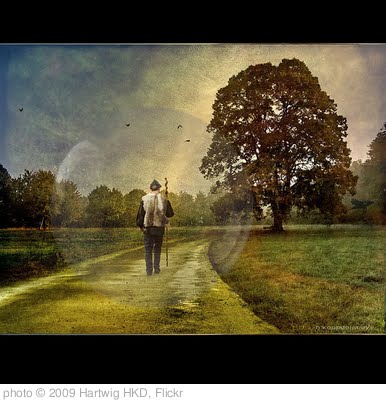See Journeys of a Religious Misfit, Part 1: Wayside Shrines.
“When all my hopes in [the religious leaders] and in men were gone, so that I had nothing outwardly to help me, nor could I tell what to do, then, oh then, I heard a voice.” – George Fox
Quakers are pretty much the opposite of Catholics.
Or at least that’s what I thought when I first walked through the meetinghouse door to join the West Knoxville Society of Friends for First Day worship.
I found myself in a simple, unadorned room with three walls of windows opened to the surrounding woods. Folding chairs formed a small, two-row square around the room. There was no pulpit and no piano, just a group of about 20 people—some young, some old— sitting in silence, as if in meditation.
“Our chairs face each other because we all minister to each other,” the program for visitors said. “There are no prearranged prayers, readings, sermons, hymns, or musical orchestration because we wait for God’s leading and power in our lives.”
I had just returned from St. Bernard Abbey , where for three days I participated in fixed-hour prayer, attended mass, joined the faithful in chants and hymns , wandered an ornate sanctuary, lit candles before alters, murmured the Lord’s Prayer, repeated the Nicene Creed, dipped my fingers in holy water, crossed myself about a million times, and ate, slept, worked, and prayed beneath giant crucifixes that hung just about everywhere.
In contrast, the Quakers have no religious dogma, no creeds, no priests, no pastors, no liturgy, no religious imagery, no outward sacraments (no physical Baptism or Communion), no ritual, no set worship service. Instead, they spend most of their meetings in complete silence, meditating and awaiting internal illumination from the Inner Light.
And yet somehow my “week of silence” brought me to both of these places—curiously juxtaposed wayside shrines.
“Occasionally, during Meeting for Worship, someone is moved to speak out of the silence,” the program said. “Although Friends value spoken messages which come from the heart and are prompted by the Spirit of God, we also value the silence and find that expectant worship may bring profound leadings. Friends have found that some leadings are for sharing immediately, some for sharing on another occasion, and some are for our personal reflection.”
Having grown up evangelical, where folks feel “moved to speak” pretty much all the time, I guess I assumed this would be something like a Sunday night sharing time or open mic. But after 30 minutes of total silence, I realized these people were serious.
Of course my inner voice, (to be distinguished from the Inner Light), was having none of it.
I’m never going to get out of that parking space. Wait. Did I leave my lights on? I bet I did. Great. And no one can come in and say that there’s a turquoise Plymouth Acclaim in the parking lot with its lights on because that would interrupt the silence. Maybe I should go check…
Look at all the bare feet. Should I take my shoes off? Judith has her shoes on, but that guy who looks like a hippie has his off. Actually, most of these folks look like hippies. Why was I expecting Amish?
No communion, huh? That seems a little fishy to me. And no Baptism? Not sure I could jive with that. And whatever would I do without in-depth Bible studies and theological debate?
Oh gosh. I think someone just farted. Good thing I didn’t serve refried beans with the taco salad last night.
Okay, I need to focus on being quiet. Quiet, Rachel, quiet.
Should I close my eyes or keep them opened? What’s everyone else doing?
The Inner Light couldn’t get a word in edgewise.
Finally, a middle-aged gentlemen stood up and started to speak. In a thick East Tennessee accent he said, “At the football game Friday night, I couldn’t help but notice how many different kinds of people were there. There were elderly, being pushed in wheelchairs and helped along. There were mothers and fathers. There were tiny children, too young to walk. Everyone was talking and laughing and enjoying one another so much that I don’t think any of us were watching the action on the field. It was beautiful, and I thought to myself, ‘What a great game.’"
That was it. He immediately sat down, and we sat in silence for another 15 minutes or so before another woman stood up and shared the words of poet and Quaker John Greenleaf Whittier:
Drop Thy still dews of quietness,
Till all our strivings cease;
Take from our souls the strain and stress,
And let our ordered lives confess
The beauty of Thy peace.
By this point I had finally settled into the silence, using some tips I’d learned from the Benedictines about contemplative prayer. I felt my body relaxing and wave of refreshment and peace fell over me. In our frenetic, information-blitzed world, true quietness is like a drink of living water.
Accidental Fences
As we sat in silence together, I remembered something William James said: “Our lives are like islands in the sea, or like trees in the forest, which co-mingle their roots in the darkness underground. Just so, there is a continuum of cosmic consciousness, against which our individuality builds but accidental fences,and into which our several minds plunge as into a other sea or reservoir.”
It occurred to me that the distinctions between Catholics at Quakers that seem so pronounced on the outside are but accidental fences in the endless continuum of God’s grace. Perhaps my frantic search for a denominational “home” was an attempt to build fences where there needn’t be any.
That sounds a lot like Buddhism, my inner voice interrupted skeptically. Pull it together, Evans.
Only two people spoke in the span of an hour. So their words were, as the Quakers would say, weighty.
The service ended when one of the Friends extended his hand to another. Afterwards, I struck up a conversation with a sweet older lady named Mary and a young man about my age. I told them a little about my womanhood project and about my trip to St. Bernard.
“It’s been quite the contrast,” I said. “Two very different styles of worship.”
“Oh not that different!” Mary said eagerly. “We love the Benedictines and have quite a lot in common.”
She knew about the accidental fences.
When they asked about my religious background, I told them about my journey and how I didn’t seem to fit anywhere anymore.
“You’re looking for a home,” Mary said.
“EXACTLY!” I replied. “That’s what I am praying for.”
They were quiet for a few seconds before the young man said, “I spent quite a few years journeying through a variety of religious traditions, looking for a place to fit. But now I feel perfectly at home here with the Friends, in a Catholic mass, meditating with Buddhist, and even jumping around clapping my hands at the African American church down the street.” (He showed us a few of his dance moves.) “I feel at home because my home is inside of me. I’ve made a place in my heart for the Spirit, and it never leaves.”
On the drive home, I thought about these weighty words.
I think that ever since our church plant failed, I’ve been trying to recapture the sense of belonging…no, control… I had when I was such an integral part of creating our community’s identity. Now, when I visit other churches, all I can see are the fences—the doctrines, traditions, and idiosyncrasies that rub me the wrong way and make me feel isolated from my fellow Christians.
But the truth of the matter is, I can’t make my own tradition in my own image. I tried that, and it didn’t work. However, I can connect to the Holy Spirit and to the people with whom the Holy Spirit resides at every wayside shrine I encounter along the way. And I can cobble together an eclectic assemblage of favorite hymns, rituals, images, service efforts, and theology to adorn the little sanctuary in my soul.
The point of the Church has never been uniformity, but unity. Perhaps we honor it best when we joyfully refuse to conform to anything but the image of Christ, and when, without even knowing the final score at the end of the day, we can turn to one another and exclaim, “What a great game!”
***
What sort of accidental fences have you encountered (or built!) within the Christian community? Have you ever had an experience in which those fences suddenly disappeared?
© 2011 All rights reserved.
Copying and republishing this article on other Web sites without written permission is prohibited.


